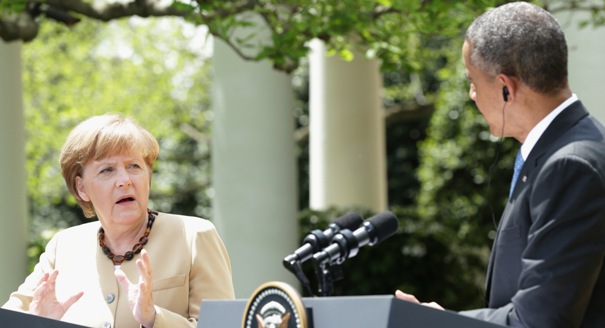There is something touching about Germany's outrage at the United States spying in the country. Allies do spy on each other, but they are supposed to do so more carefully. From its very foundation in 1949, the Federal Republic has been watched not only by the Soviet Union, and then Russia, but by the Western powers as well. The NSA scandal, touched off by Edward Snowden's revelations last year, should have dispelled the last remaining illusions. Yet, the most recent charges against an agent within the Bundesnachrichtendienst, the German intelligence service, allegedly spying for the United States, has brought matters to a head again.
Yet, the fact that the German protestations become ever louder and ever angrier may point also to something else. Germany is rediscovering its dignity. Just thirty years ago, the phrase "German national interest" was taboo. Just fifteen years ago, an open disagreement on a major international issue between Germany and the United States was unthinkable. Just five years ago, Germany abstaining at the UN Security Council alongside Russia and China was hard to imagine. Things keep changing, and the old relationships like the Franco-German tandem or the Russo-German partnership are being recast.
Eventually, this will also be true of the U.S.-German alliance. Spying scandals accelerate the process somewhat, and give it a public spin, but they do not drive it. Slowly, Germany is emerging as the sole leader of the EU, and as a major power in Eurasia, alongside China and Russia. One result of this will be providing a sense of "normalcy" to Berlin's formerly special relationships, which used to extend privileges to its allies. The United States will be no exception.





